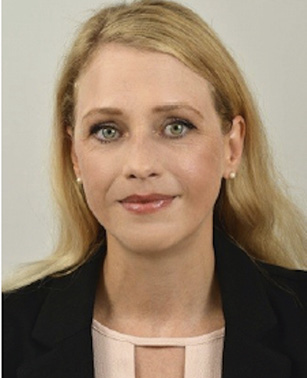FILL for Future (F4F) – Framework Information Literacy Lessons digital
Zusammenfassung
Das Framework for Information Literacy for Higher Education macht einfallsreich und erfinderisch – gerade in Coronazeiten und darüber hinaus. Der Beitrag berichtet über die aktuellen Fortschritte des preisgekrönten Konzeptes FILL (Framework Information Literacy Lessons), das sich in seiner digitalen Weiterentwicklung als FILL for Future (F4F) präsentiert. Mit innovativen und spielerischen Impulsen aus dem Framework reichert es bibliothekarische Schulungspraxis an. Damit gilt F4F als beispielhaftes Projekt in der globalisierten Informationswelt. Es präsentiert sich offen und vernetzt, wie etwa Teaching Libraries mit ihren Zielgruppen. Ganzheitlich gestaltet tragen die vielfältigen Aktivitäten von F4F zur Verbreitung des US-amerikanischen Frameworks weiter und nachhaltig bei.
Abstract
The Framework for Information Literacy for Higher Education is a resourceful tool offering inventive solutions in times of the coronavirus – and far beyond that. The article presents the latest advances of the award-winning concept FILL (Framework Information Literacy Lessons), now digitally evolved into the FILL for Future (F4F). Innovative and playful incentives provided by the framework are used to enhance library teaching and training practices, and make F4F an exciting, exemplary project in the globalized digital information sphere. It is open and networked like other developments such as Teaching Libraries with a view to their respecitve target groups. F4F’s large variety of activities succeeds in a holistic and sustainable way for the US-American framework to gain currency.
About the author

Tessa Sauerwein M.A.
5 Literaturverzeichnis
AG Informationskompetenz des Bibliotheksverbunds Bayern: Visualisierung des Framework for Information Literacy for Higher Education, http://zpidlx54.zpid.de/wp-content/uploads/2018/10/IK-Grafik_Framework_140-146mm_181107.pdf [Zugriff: 15.04.21].Search in Google Scholar
Deeg, Christoph: Gaming und Bibliotheken. Berlin, Boston 2014 (= Praxiswissen), https://doi.org/10.1515/9783110312836.10.1515/9783110312836Search in Google Scholar
Franke, Fabian: Das Framework for Information Literacy. Neue Impulse für die Förderung von Informationskompetenz in Deutschland?! In: o-bib. Das offene Bibliotheksjournal 4.4 (2017), S. 22–29, https://doi.org/10.5282/o-bib/2017H4S22-29.Search in Google Scholar
Franke, Fabian: Urheberrechtskompetenz – ein Thema für Bibliotheken?! Status Quo und Perspektiven. In: o-bib. Das offene Bibliotheksjournal 6.4 (2019), S. 151–163, https://doi.org/10.5282/o-bib/2019H4S151-163.Search in Google Scholar
Gemeinsame Kommission Informationskompetenz von dbv und VDB; Schoenbeck, Oliver; Schröter, Marcus; Werr, Naoka: Framework Informationskompetenz in der Hochschulbildung. In: o-Bib. Das offene Bibliotheksjournal 8.2 (2021), S. 1–29, S. 4, https://doi.org/10.5282/o-bib/5674.Search in Google Scholar
Julien, Heidi E.; Gross, Melissa; Latham, Don (Hg.): The Information Literacy Framework. Case Studies of Successful Implementation. Lanham, Maryland 2020.Search in Google Scholar
Martin-Konle, Claudia; Senst, Erik; Schoenbeck, Oliver et al.: 2. Informationskompetenztag – unter einem D-A-CH in Bamberg. In: o-Bib. Das offene Bibliotheksjournal 5.4 (2018), S. 295–298, https://doi.org/10.5282/o-bib/2018H4S295-298.Search in Google Scholar
Renn, Oliver; Dolenc, Jožica; Schnabl, Joachim: Das Framework for Information Literacy for Higher Education– in die Praxis umgesetzt! In: o-bib. Das offene Bibliotheksjournal 5.4 (2018), S. 262–275, https://doi.org/10.5282/o-bib/2018H4S262-275.Search in Google Scholar
Sauerwein, Tessa: Framework Information Literacy – Aspekte aus Theorie, Forschung und Praxis. In: Bibliothek – Forschung und Praxis 43.1 (2019), S. 126–138, https://doi.org/10.1515/bfp-2019-2027.10.1515/bfp-2019-2027Search in Google Scholar
Sauerwein, Tessa: Positionspapier Informationskompetenz. In: Çetta, Daphné; Griesbaum, Joachim; Mandl, Thomas et al. (Hg.): (2020): Zukunftsdiskurs Informationskompetenz und Demokratie (IDE). Bürger, Suchverfahren und Analyse-Algorithmen in der politischen Meinungsbildung. Positionspapiere zur Informationskompetenz und Informationskompetenzvermittlung. Aktueller Stand und Perspektiven. Hildesheim 2020, S. 53–55, https://doi.org/10.18442/095.Search in Google Scholar
Scherbel, Nicole: Framework turns visual. Auf dem Weg zu einem neuen Verständnis von Informationskompetenz. In: Bibliotheksforum Bayern 13.2 (2019), S. 117.Search in Google Scholar
Streeck, Hendrik; Schulte, Bianca, Kümmerer, Beate M. et al.: Infection fatality rate of SARS-CoV2 in a super-spreading event in Germany. In: Nature Communications 11.5829 (2020), https://doi.org/10.1038/s41467-020-19509-y, https://doi.org/10.1101/2020.05.04.20090076 (Preprint).10.1038/s41467-020-19509-ySearch in Google Scholar
© 2021 Walter de Gruyter GmbH, Berlin/Boston
Articles in the same Issue
- Frontmatter
- Editorial
- Aus den Verbänden
- Die Arbeitsgemeinschaft der Regionalbibliotheken in der Sektion 4 des dbv – Bericht für die Jahre 2019/2020
- Zukunftsaufgaben: Bibliotheken im digitalen Wandel
- „Engagierte Berichterstattung begleitet den langen Weg zur neuen Bibliothek“
- Novellierung Urheberrecht: Deutscher Bibliotheksverband begrüßt Vorschlag des Bundesrats zur Entfristung der Bildungs- und Wissenschaftsschranke im Urheberrecht
- #BuchistBuch: Gesetzliche Regelung des E-Lendings
- Digitalprogramm „WissensWandel“ des dbv erhält zusätzlich 10 Mio. Euro für Bibliotheken und Archive
- Teilhabechancen von Kindern und Jugendlichen nachhaltig verbessern!
- Quo vadis Öffentliche Bibliothek?
- Themen
- Corona – Sind unsere Studierenden wegen digitaler Lehre schlechter ausgebildet und weniger geeignet für den Arbeitsmarkt?
- Classroom Citation: Das weltweite Open Syllabus-Projekt als dritte Säule bibliometrischer Leistungsvergleiche wissenschaftlicher Communities und Verlagsunternehmen
- FILL for Future (F4F) – Framework Information Literacy Lessons digital
- Notizen und Kurzbeiträge
- Notizen und Kurzbeiträge
- Veranstaltungen
- 10. Tag der Bestandserhaltung Berlin Brandenburg – ein Jubiläum
- Termine
- Termine
Articles in the same Issue
- Frontmatter
- Editorial
- Aus den Verbänden
- Die Arbeitsgemeinschaft der Regionalbibliotheken in der Sektion 4 des dbv – Bericht für die Jahre 2019/2020
- Zukunftsaufgaben: Bibliotheken im digitalen Wandel
- „Engagierte Berichterstattung begleitet den langen Weg zur neuen Bibliothek“
- Novellierung Urheberrecht: Deutscher Bibliotheksverband begrüßt Vorschlag des Bundesrats zur Entfristung der Bildungs- und Wissenschaftsschranke im Urheberrecht
- #BuchistBuch: Gesetzliche Regelung des E-Lendings
- Digitalprogramm „WissensWandel“ des dbv erhält zusätzlich 10 Mio. Euro für Bibliotheken und Archive
- Teilhabechancen von Kindern und Jugendlichen nachhaltig verbessern!
- Quo vadis Öffentliche Bibliothek?
- Themen
- Corona – Sind unsere Studierenden wegen digitaler Lehre schlechter ausgebildet und weniger geeignet für den Arbeitsmarkt?
- Classroom Citation: Das weltweite Open Syllabus-Projekt als dritte Säule bibliometrischer Leistungsvergleiche wissenschaftlicher Communities und Verlagsunternehmen
- FILL for Future (F4F) – Framework Information Literacy Lessons digital
- Notizen und Kurzbeiträge
- Notizen und Kurzbeiträge
- Veranstaltungen
- 10. Tag der Bestandserhaltung Berlin Brandenburg – ein Jubiläum
- Termine
- Termine

